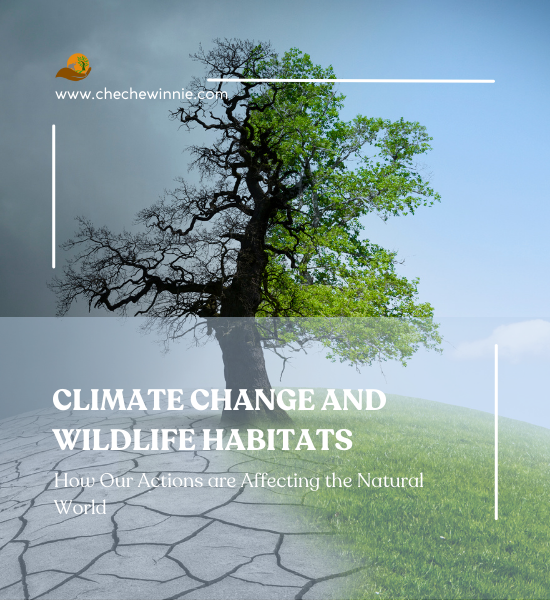As the world continues to grapple with the consequences of climate change, the effects on wildlife habitats are becoming increasingly clear.
The burning of fossil fuels and other human activities have led to a steady increase in global temperatures, causing major changes to the planet’s ecosystems.
What is Climate Change and How is it Affecting Wildlife Habitats?
Climate change is the long-term change in the Earth’s climate system, including changes in temperature, precipitation patterns, and weather events.
These changes are caused by human activities, such as burning fossil fuels and deforestation, which release greenhouse gases into the atmosphere. As a result, the planet’s average temperature is steadily increasing, leading to major changes in ecosystems around the world.
Effects of Climate Change on Different Species and Habitats
The effects of climate change on wildlife habitats are diverse and vary by region and species.
Some species are more vulnerable than others, and some habitats are more resilient to change than others.
For example, coral reefs are highly vulnerable to climate change, as warming waters can cause coral bleaching and death.
The Consequences of Habitat Loss for Wildlife and Ecosystems
Habitat loss due to climate change has major consequences for wildlife and ecosystems.
As habitats shrink and change, many species are forced to adapt or face extinction. This can lead to a reduction in biodiversity and the loss of crucial ecosystem services, such as pollination and carbon sequestration.
Climate Change Mitigation and Adaptation: Finding Solutions to Protect Wildlife Habitats
Climate change mitigation and adaptation are essential for protecting wildlife habitats and preserving biodiversity.
Mitigation efforts aim to reduce greenhouse gas emissions and slow the pace of climate change, while adaptation efforts focus on helping species and ecosystems adapt to changing conditions.
Solutions include:
- Reducing our reliance on fossil fuels
- Supporting renewable energy sources
- Protecting and restoring natural habitats
Our Role in Addressing Climate Change and Protecting Wildlife Habitats
We all have a role to play in addressing climate change and protecting wildlife habitats.
Simple actions, such as reducing our carbon footprint, supporting renewable energy, and using sustainable products, can help to mitigate the effects of climate change.
Advocating for policies that protect wildlife and their habitats, supporting conservation organizations, and promoting public awareness can also make a difference.
In conclusion
Climate change is having a major impact on wildlife habitats and the natural world. It is important that we take action to mitigate its effects and protect vulnerable species and ecosystems.
By working together and taking action, we can help to preserve biodiversity and ensure a healthy planet for future generations.

